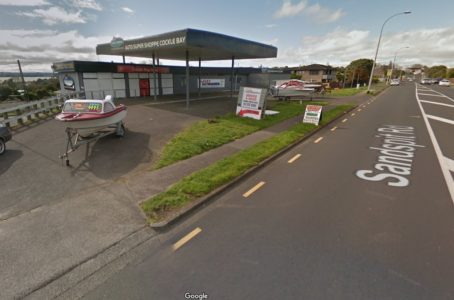
Resident and ratepayer groups are ecstatic after commissioners refused resource consents to obuild a 71-unit residential development in Cockle Bay.
Independent Hearing Commissioners last week refused consent for the proposed development at 30 and 40 Sandspit Road and 2 and 4 Reydon Place.
The applicant Box Property Ltd sought resource consent for an integrated residential development (IRD) opposite Howick College and Cockle Bay School. .
The independent hearing commissioners highlighted the principal issues in contention are that the application – submitted by Box Property Ltd – is not for an integrated residential development but for a multi-unit residential development; the proposal failed to satisfy the ‘gateway’ tests of the Resource Management Act (RMA); the effects of the proposal will be more than minor, particularly effects relating to the amenity of the area in general and on neighbouring residents; the proposal is contrary to the relevant objectives and policies of the Auckland Unitary Plan; there is a high potential for an undesirable precedent to be set if this consent was granted; and the proposal is not consistent with the purpose of the RMA.
The decision by the commissioners named David Jans representing Box Property Ltd. The NZ Companies Office shows Jans, of Kohimarama, is one of two directors of Box Property Investments which has its registered office in Whitford at the same address as that of the second director Michael Sullivan. Jans told the Times: “Needless to say we are disappointed in the decision and see it as a working against the intentions of the AUP for such sites. Right now we are reviewing your options as to the next steps to take.
“Needless to say we are disappointed in the decision and see it as a working against the intentions of the AUP for such sites. Right now we are reviewing your options as to the next steps to take.”
Cockle Bay Residents and Ratepayers Association (CBRRA), together with Howick Ratepayers and Residents Association, welcomed the decision of the commissioners.
CBRRA chair Laurie Slee said the Cockle Bay Residents and Ratepayers Association had worked closely to support local residents opposed to the development.
“They are equally delighted with the decision,” said Slee.
“It follows many months of anxiety and concern for many of those adjacent to the proposed development. These people viewed the proposed 71 apartment development on land zoned for only nine single houses as incompatible with the neighbourhood.
It threatened the amenity values and strong community atmosphere they have developed, in particular in Reydon Place, he said.
The decision followed two very intense days of public hearings in which local residents, with little familiarity with planning applications, found themselves face to face with an experienced developer and his supporting team, led by a barrister, and supported by planners, architects and other professional people.
“When the notification was first published, our association had objected to the Council Planning Committee about the statements that there was no requirement for wider public notification because ‘there was nothing exceptional or unusual about the application, which had nothing out of the ordinary run of things’.
“Our contention was that the proposed development application was potentially precedent-setting for the whole of Auckland, given that the classification used was a new one in the Auckland Unitary Plan. Council indicated that they could not quote precedents.”
The association subsequently objected, unsuccessfully, to the offices of both the Ombudsman and the Auditor General, both of whom declined to become involved in the debate. One stated that the association (even though it was speaking on behalf of local residents), was not directly impacted and the other that this was a matter governed by the RMA.
Apart from compliance with the definitions and objectives set out in the AUP, the proposed development raised many other points of debate, ranging from whether it met required environmental safeguards; traffic congestion; loss of amenity value and other topics. “Our associations are pleased to note that after an initial reluctance to be involved, the Howick Local Board provided feedback opposing the development,” said Slee.
In their decision the commissioners supported the residents who maintained that the development was not a genuine IRD.
“In what we regard as a tribute to the professionalism of the residents submissions, the Commissioners went so far as to quote a number of residents views on the definition of what constituted such a development,” Slee said.
“The Commissioners also quoted one of the submitters conclusions, using words not dissimilar to those in the Howick and Pakuranga Times some months back, that it is important for public to be able to trust in the Auckland Unitary Plan and the safeguards it provides, and that without this trust the Plan ‘is not worth the paper it is written on’.”
The association believes that the case establishes an important precedent for Auckland as a whole by preventing the proposal acting as a “Trojan Horse” that could be quoted in subsequent development applications.
“We congratulate the commissioners, those council planners who expressed reservations about the development and the residents on a successful outcome.”









